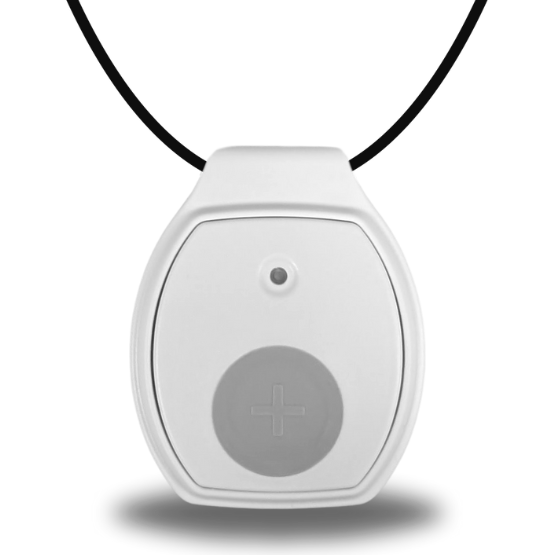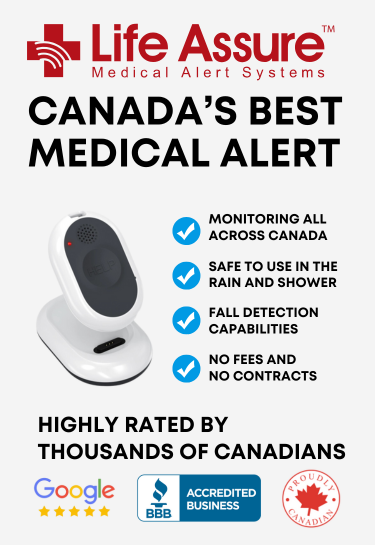How Healthcare Professionals Can Improve Patient Communication and Care
All healthcare practitioners play a key role in patient care. Their clear communication impacts outcomes. Good communication builds trust and reduces confusion. It helps patients follow instructions and lowers stress.
When patients feel heard, they cooperate better. This leads to stronger relationships and quicker recoveries between patients and healthcare professionals. This article explores ways to improve communication and care.
Life Assure Product Quiz
Find The Perfect Medical Alert Device
Take our 30 second quiz and discover which Life Assure medical alert device is the right fit for you or a loved one.
Life Assure Product Quiz
Find The Perfect Medical Alert Device
Take our 30 second quiz and discover which Life Assure medical alert device is the right fit for you or a loved one.
Why are Healthcare Professionals the Pillars of Patient Care?
Healthcare workers provide more than medical help. They offer emotional support, too. Their role includes guiding patients through health issues.
Clear communication is key. It builds trust and helps patients feel heard. When patients feel supported, their care improves. Trust leads to better health outcomes.
Clear Communication Builds Trust
When healthcare workers communicate clearly, patients feel informed. Simple explanations reduce confusion. Patients are more likely to trust their care team.
This trust is key to cooperation and better outcomes. Clear communication helps avoid misunderstandings. It fosters a sense of comfort. With trust, patients follow treatment plans more closely, improving their care.
Simplifying Complex Medical Information
Medical terms often confuse patients. Healthcare workers must break down complex information into simple language. This helps patients understand their health and treatment.
When patients understand the details, they make better choices. Simplifying information builds confidence in their care. It ensures patients are active participants in their health journey.
Creating a Sense of Control for Patients
Creating a sense of control is important for patients. When they understand their condition, they feel more empowered.
Clear explanations from healthcare practitioners help them grasp their options. Feeling in control boosts their ability to follow instructions. This leads to better outcomes and faster recoveries.
Quick Decision-Making with Clear Instructions
In emergencies, clear communication is crucial. A healthcare personnel must deliver instructions that patients and families can quickly understand.
This reduces confusion in stressful situations. When patients know the steps being taken, they feel more secure. Quick, clear instructions lead to better decisions and smoother care.
Involving Families in the Process
Involving families in care is essential. They play a crucial role in supporting patients. Clear communication helps families understand treatment and needs.
When families are informed, they can offer better support. This teamwork strengthens the care process. Effective communication keeps everyone aligned, aiding the patient’s recovery.
Advocacy for Patients’ Needs
Some patients struggle to express their needs. Healthcare practitioners advocate for them. They make sure the patient’s voice is heard.
This advocacy focuses on the patient’s best interests. Professionals turn medical details into actions that benefit the patient. This role ensures care meets the patient’s true needs.
How Can Healthcare Practitioners Boost Patient Communication and Care?
Good communication is key to patient care. A healthcare personnel who communicate well can improve patient trust and understanding.
Clear, simple language and active listening make a big difference. By focusing on these skills, healthcare workers can provide better care. Trust grows, and patients feel more confident in their treatment.
Listening Actively to Patients
Active listening is more than hearing words. It means grasping a patient’s feelings and worries. By focusing fully, medical practitioners see the patient’s true condition.
This helps patients feel heard. When patients feel understood, they trust their caregivers more. Trust builds stronger relationships and better outcomes.
Using Simple and Clear Language
Medical terms can confuse patients. Medical professionals should use simple words. This makes diagnosis and treatment clearer.
When patients understand, they follow instructions better. Clear communication reduces anxiety. It helps patients manage their health and be involved in their care.
Checking for Patient Understanding
After explaining a condition or treatment, healthcare professionals should ask patients to repeat the key points. This helps identify misunderstandings.
When patients can explain in their own words, it shows they understand. If not, the healthcare worker can clarify. This step ensures patients know what to expect and how to manage their care.
Non-verbal Communication is Key
Non-verbal cues are also very important to show care and concern. For instance, eye contact and body gestures are two very prime examples. Healthcare workers who use these signals build trust. A calm tone and open posture can make patients feel more at ease.
These cues help establish a connection that words alone can’t achieve. They play a key role in patient comfort and confidence.
Asking Open-Ended Questions
Open-ended questions let patients provide more details. These questions go beyond "yes" or "no" answers. Asking "How do you feel today?" helps get deeper responses.
These answers give healthcare practitioners better insight into the patient's needs. It allows for better understanding and improves care.
Using Technology to Support Communication
Technology, like patient portals, allows patients to access their medical records and care instructions easily. Telehealth offers the convenience of remote follow-ups. These tools improve communication and help patients stay informed.
Since they will have easy access to their health information, patients are more likely to stay engaged. It will also help them follow treatment plans.
Encouraging Patients to Ask Questions
Many a times, patients do not ask questions by themselves. A lot of them are hesitant to speak up. A healthcare personnel should encourage them to speak up. Letting patients know that every question matters creates a more open dialogue.
This reassurance helps patients feel more involved in their care. It leads to better understanding and fewer mistakes. Confidence in asking questions improves health outcomes.
Building Empathy with Patients
Empathy helps healthcare practitioners understand their patients' feelings. Moreover, it also helps in creating a safe space for patients.
This reduces patient anxiety and stress. A compassionate approach makes patients feel valued. It builds a stronger bond between the patient and the provider. This leads to better care and trust.
Providing Consistent Follow-Up
Consistent follow-ups show patients that their well-being matters. Checking in after treatments or appointments helps patients feel supported.
It gives them a chance to ask questions or share concerns. This ongoing communication improves long-term care and keeps patients engaged in their health management.
Conclusion
Effective communication is crucial for patient care. Healthcare professionals who listen and explain clearly build trust. Checking for understanding helps prevent confusion. Simple actions can greatly enhance patient well-being.










 Get Help With The Push Of A Button
Get Help With The Push Of A Button











